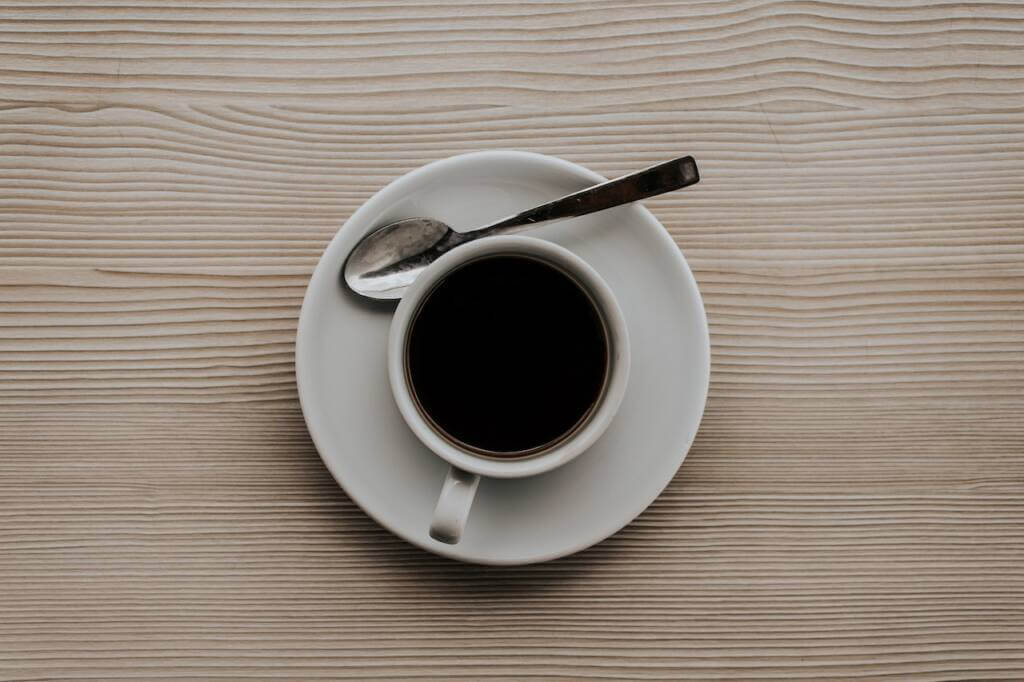If you’re a fan of coffee but looking for a caffeine-free option, and concerned about using chemicals in traditional decaffeination methods, you may be interested in Swiss Water Process. In this article, we’ll introduce you to some well-regarded brands that offer Swiss Water Process decaf coffee. Whether you’re a fan of light, medium, or dark roasts, you’ll find Swiss Water Process decaf coffee brands and much more. So, let’s get started!
What Is Swiss Water Process Decaf?
The Swiss Water Process (SWP) is a method of decaffeinating coffee that uses water to extract caffeine from green (unroasted) coffee beans. The chemical-free process involves soaking the beans in water to dissolve the caffeine, then using a carbon filter to remove the caffeine from the water. The water is then re-used to extract caffeine from a new batch of beans, and this process is repeated until the desired level of decaffeination is achieved.
The Swiss Water Process is considered a safer and more natural decaffeination method than other methods, which often use chemicals to remove caffeine from the beans. It is also considered more effective at preserving the flavor and integrity of the coffee beans than other decaffeination methods. So, if you are looking for a chemical-free, flavor-preserving option for decaffeinated coffee, Swiss Water Process decaf may be a good choice for you.
History Of Swiss Water Decaf?
The Swiss Water Process (SWP) is a chemical-free method of decaffeinating coffee that was developed in Switzerland in the 1930s. At the time, most decaffeination methods involved using chemicals to extract caffeine from the beans, which often altered the flavor and aroma of the coffee.
In the 1980s, the SWP was introduced to North America, where it quickly gained popularity among coffee producers and consumers looking for a chemical-free, flavor-preserving option for decaffeinated coffee. Today, the SWP is widely used by coffee companies worldwide as a safe and effective decaffeination method.
The founders of the Swiss Water Decaffeinated Coffee Company set out to create a chemical-free decaffeination method that would preserve the flavor and integrity of the coffee beans. They developed a process that used water and a carbon filter to extract caffeine from the beans, and the company began using this process to decaffeinate coffee for commercial sale.
How Can You Tell If It’s Swiss Water Decaf Coffee?
If you’re a fan of decaf coffee, you may have heard of the Swiss Water Process as a way to decaffeinate coffee beans. But how can you tell if coffee has been decaffeinated using the Swiss Water Process? This article will cover a few ways you can tell if coffee is Swiss Water decaf. Whether you’re shopping for coffee online or at a local store, these tips will help you identify Swiss Water decaf coffee and make an informed purchase. So, let’s get started!
1. Look for the Swiss Water Process seal on the bag: Many brands that use the Swiss Water Process to decaffeinate their coffee will include the Swiss Water Process seal on their packaging.
2. Check the ingredient list: to ensure that your decaf coffee does not contain harmful contaminants like mycotoxins and mold, you should check the ingredient list on the package. Selecting a brand specifically grown and tested for the absence of these contaminants will help ensure that your coffee is safe to consume.
3. Look for the Swiss Water Process logo: Some brands may include the Swiss Water Process logo on their packaging or on their website.
4. Contact the brand’s website: Many brands that use the Swiss Water Process to decaffeinate their coffee will include information about it on their website.
5. Ask the company: If you’re still not sure, you can always contact the company directly to ask if their decaf coffee is processed using the Swiss Water Process.
Benefits Of Swiss Water Decaf
The Swiss Water Process is a popular method of decaffeinating coffee because it offers several benefits compared to other decaffeination methods. Some of the main benefits of using the Swiss Water Process to decaffeinate coffee include the following:
1. Chemical-free process: No chemicals are used to extract caffeine from the beans. This makes it a safer and more natural option for those concerned about chemical residues in their coffee.
2. Preserves the flavor of the coffee: SWP is designed to preserve the flavor and taste of the coffee, so the resulting decaffeinated coffee should taste similar to regular coffee.
3. It is effective at removing caffeine: generally considered to be effective at removing a significant amount of caffeine from the beans, leaving them with less than 1% caffeine content.
4. Environmentally friendly: this water-based process has a lower environmental impact than other decaffeination methods that use chemicals.
5. Available for a variety of coffee types: The Swiss Water Process can be used to decaffeinate a wide range of coffee types, including light, medium, and dark roasts.
6. Suitable for those with caffeine sensitivities: good options for those who are sensitive to caffeine or want to limit their caffeine intake for other reasons. It can help them enjoy coffee without the negative effects of caffeine.
7. Transparent process: an open and transparent process about its methods and ingredients. This makes it easy for consumers to know exactly what goes into their coffee.
The Swiss Water Process is a popular choice because it is chemical-free, flavor-preserving, effective, and environmentally friendly. In addition, decaf is generally recommended to the elderly as studies have shown positive effects on age-related mental decline.
How Do You Make Swiss Water Decaf Beans?
The Swiss Water Process involves several steps to decaffeinate coffee beans. First, the coffee beans must be unroasted and in their raw green beans state during the process. Overall, flavors and taste will be preserved. Here is an overview of how it works:
1. The green (unroasted) coffee beans are soaked in hot water to extract the caffeine and other soluble compounds.
2. The water is then passed through an activated carbon filter, which absorbs the caffeine and other compounds.
3. The resulting water, now called “green coffee extract,” is used to soak a new batch of beans.
4. The caffeine and other soluble compounds from the new batch of beans are extracted into the water.
5. The water is again passed through the activated carbon filter to remove the caffeine and other compounds.
6. The process is repeated until the beans are 99.9% caffeine-free.
7. The decaffeinated beans are then dried and roasted to the desired level of darkness.
The Swiss Water Process is a chemical-free method that relies on the natural properties of water, temperature, and osmosis to extract caffeine from the beans. It is a gentle process designed to preserve the flavor and taste of the coffee.
Check Out Other Articles
How To Remove Old Coffee Stains From Clothing
What Is A Breve - Should You Try It?
Ristretto Vs Espresso - What Is The Difference?
What Is White Coffee - Roasting Methods?
FAQ
Does the Swiss Water Process Have Caffeine?
The Swiss Water Process is a decaffeination method that is used to remove caffeine from coffee beans. It is designed to remove at least 99.9% of the caffeine from the beans, leaving them with less than 1% caffeine content. . It is important to note that the exact amount of caffeine can vary depending on a number of factors, including the type of beans used, the roast level, and the brewing method.
What Is The Difference Between Decaf And Swiss Water Decaf?
Decaf refers to decaffeinated coffee or had the majority of its caffeine removed. Several different methods can be used to decaffeinate coffee, including the Swiss Water Process, the chemical solvents method, and the CO2 method.
Swiss Water decaf is coffee that has been decaffeinated using the Swiss Water Process. This chemical-free process uses water, temperature, and osmosis to extract caffeine from the beans while preserving the flavor and taste of the coffee. It involves soaking the beans in hot water to extract the caffeine, then using activated carbon to filter out the caffeine from the water. The process is repeated until the beans are 99.9% caffeine-free.
So the main difference between decaf and Swiss Water decaf is the method used to decaffeinate the coffee. Decaf can refer to coffee that has been decaffeinated using any method, while Swiss Water decaf specifically refers to coffee that has been decaffeinated using the Swiss Water Process.
Where To Buy Swiss Water Decaf Coffee?
Swiss Water decaf coffee is a great option if you are looking to cut back on your caffeine intake or are sensitive to caffeine. Furthermore, you can enjoy the taste of coffee without the negative effects. There are several places where you can buy Swiss Water decaf coffee brands
- Coffee shops: Many coffee shops offer a selection of decaf coffee options, including Swiss Water decaf.
2. Grocery stores: Many grocery stores carry a variety of decaf coffee brands, including those that use the Swiss Water Process to decaffeinate their beans.
3. Online retailers: You can also find Swiss Water decaf coffee on online retailers such as Amazon, eBay, and specialty coffee websites.
4. Direct from the roaster: Some coffee roasters offer Swiss Water decaf coffee for sale on their websites or in their physical stores.
5. It is worth checking with the coffee seller to make sure that the coffee you are purchasing has been decaffeinated using the Swiss Water Process, as some brands may use other methods to decaffeinate their beans.
If you have trouble finding Swiss Water decaf coffee locally, you may want to try looking for it online. Many online retailers specialize in selling coffee, and you may find a wider selection of Swiss Water decaf coffee options.
No products found.
Is McDonald’s Decaf Swiss Water Processed?
Yes, McCafé premium roast decaffeinated coffee is Swiss water processed and made with 100% high-quality arabica beans. These beans are roasted slightly longer than medium to achieve a balanced, full-bodied flavor and a fragrant aroma. In addition, the blend used for this coffee only consists of hard beans grown at high altitudes and in optimal climate conditions, enhancing flavor development over time.
Is Folgers Decaf Swiss Water Processed?
Folgers does not use the Swiss Water Process to decaffeinate their coffee. Instead, they employ the ethyl acetate and methylene chloride to decaffeinate their classic decaf instant crystals. After the caffeine is removed, the beans are steamed once more and set aside to be roasted later.
Final Thoughts
There are many reasons why the Swiss water process has become increasingly popular among coffee drinkers. Overall, it is an excellent choice for anyone who wants to enjoy coffee and limit caffeine intake.
Thus, our guide above can undoubtedly serve you well if you’re looking for the best Swiss water decaf coffee
types and where to buy them. I have compiled this list only after careful research and curation, depending on my preferences and reviews from various other customers. When choosing coffee from the list above, you surely won’t be disappointed!





